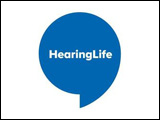February is Heart Health month. According to The Heart and Stroke Foundation “Heart disease affects 1.3 million Canadians…and 8 in 10 cases of premature heart disease and stroke is preventable through healthy lifestyle behaviours.” Let’s talk about common risk factors and natural heart health tips!
Common Problems and Potential Risk Factors
High Cholesterol/Atherosclerosis (Hardening, Thickening and Narrowing of Arteries)
- Blood Sugar Imbalances and Insulin Resistance, Toxin Exposure and Overloaded Liver, Infections, Stress, Over Acidity, Poor Gut Health and Silent Inflammation, Increased Blood Pressure, Physical Inactivity, Obesity, Estrogen Imbalances, Poor Diet.
High Blood Pressure/Hypertension (Increased Pressure on Artery Wall)
- Increased Blood Flow – Due to Chronic Stress, Caffeine Intake
- Arterial Stiffness/Resistance – Due to Age (naturally lose flexibility) or Atherosclerosis
- Fluid Retention (increases blood volume and pressure) – Due to Poor Kidney Function, High Dietary Sodium Intake or Low Potassium/Magnesium.
A Note on Cholesterol
Dietary Cholesterol is not bad! This is a common misconception. 80-90% of the cholesterol in your body is produced by your liver and does not come from your meals. Your liver is able to adjust how much is produced based on your dietary intake. It is dangerous free radicals, toxins, excess blood sugar, cortisol (stress hormone), homocysteine, fatty protein and infectious microbes that damage arterial lining, which leads to harmful inflammation and arterial plaque build-up. Cholesterol then must be carried through the body to reach its destination and LDL and HDL are its carriers. HDL’s job is to bring cholesterol away from the body and to the liver in order to be metabolized and eliminated. LDL brings cholesterol to sites in the body that need it for repair, protection or synthesis of vital compounds. It can also transport twice as much cholesterol as HDL. In this regard, cholesterol is actually used to try to keep the body healthy! Cholesterol accumulates only in an attempt to heal vessels. We need adequate cholesterol to build cell membranes, hormones, convert vitamin D3 and make bile acid.
10 Suggestions for Heart Health!
1) Manage Blood Sugar
- Excess blood sugar damages blood vessels, increases blood fats, increases inflammation and lowers good cholesterol. Ensure adequate fibre and protein as well as ingredients such as chromium, chirositol and berberine. Soluble Fibre acts as a sponge, absorbing excess cholesterol and removing it from the body!
2) Cooking Methods
- Avoid frying foods with unstable oils. This produces dangerous free radicals. Choose coconut oil, grass-fed butter or ghee for high temperature cooking.
3) Manage Stress
- Excess cortisol from stress raises blood pressure, triglycerides and cholesterol. Consider cognitive techniques, relaxation and natural supplementation (i.e. adaptogenic formulas). Remember, laughter dilates blood vessels!
4) Manage Thyroid (if necessary)
- Hypothyroidism can worsen heart disease and affects cholesterol elimination. Look for ingredients like tyrosine, iodine and selenium.
5) Avoid Toxic Ingredients
- Toxic ingredients include items such as drugs, tobacco, alcohol, additives, heavy metals, pollution, chemicals, and synthetic hormones.
6) Regular Exercise
- Maintain a healthy weight and take part in consistent, moderate exercise.
7) Balance Hormones (if necessary)
- Proper estrogen levels can have a protective effect. Consider ingredients such as Indole 3 Carbinol, DIM and Calcium D-glucarate.
8) Heal Gut
- Consider gut repair nutrients (L-glutamine) and digestive enzymes. Probiotics play a role in cholesterol re-absorption and inflammation management.
9) Dietary Recommendations
- Emphasize anti-inflammatory, antioxidant, high fibre, mineral-packed, omega-rich ingredients!
- Avoid artificial, instant, refined/”white”, processed ingredients (i.e. flour, sugar, etc.) and be aware of common sensitivities (i.e. gluten and dairy).
- Replace coffee with tea and avoid alcohol.
- Moderate salt intake and choose sea salt over regular table salt!
- Consume saturated fats (from animal products) in moderation and choose organic, grass-fed sources.
- Eliminate rancid or trans-fats and choose olive, avocado and camelina oils!
- Aim for an omega 6 to 3 ratio as close to 1:1 as possible (as least 4:1 is recommended).
Top Heart Superfoods Include: Flax, chia, pumpkin seeds, olives, walnuts, almonds, quinoa, pomegranate, berries, apples, spinach, beans, lentils, avocadoes, hemp, coconut, salmon, garlic, oats, prunes, beets, grass-fed beef, buckwheat, oats, dark chocolate (in moderation).
Did You Know? Beets provide nitrates for nitric oxide production which dilates vessels and helps to lower blood pressure. Omega 3 fats (High EPA) help to reduce serum triglycerides, blood pressure, free radicals and cholesterol, plus they act as anti-inflammatories! Omega 9 fats are shown to lower LDL and raise HDL cholesterol!
10) Supplement Suggestions
- Consider natural support to lower blood pressure, control cholesterol as well as fight inflammation, protect arteries and repair damaged tissue.
- Sytrinol lowers cholesterol and triglycerides, plus acts as an antioxidant and anti-inflammatory.
- Coenzyme Q10 (active form Ubiquinol) works to lower blood pressure, maintains a healthy cholesterol ratio as well as an antioxidant. Note that statin drugs deplete CoQ10!
- Magnesium works to lower LDL and increase HDL cholesterol as well as lowers blood pressure, improves vascular function and regulates fluid balance.
- Vitamin B3/Niacin (as nicotinic acid) improves cholesterol ratio and lowers triglycerides. Collagen, Vitamin C, Proline and Lysine increases flexibility in the arteries, helps to repair connective tissues, regulates cholesterol metabolism, and improve circulation.
- Garlic and Hawthorn have both been shown to improve blood pressure and LDL cholesterol.
- Berberine lowers blood sugar, triglycerides, cholesterol and blood pressure.
Did You Know? Vitamin C has been referred to as “nature’s perfect statin” and is also a powerful antioxidant, fighting off free radicals that cause arterial damage! As humans, we cannot produce Vitamin C within our bodies so we must rely on dietary intake to get adequate amounts.



